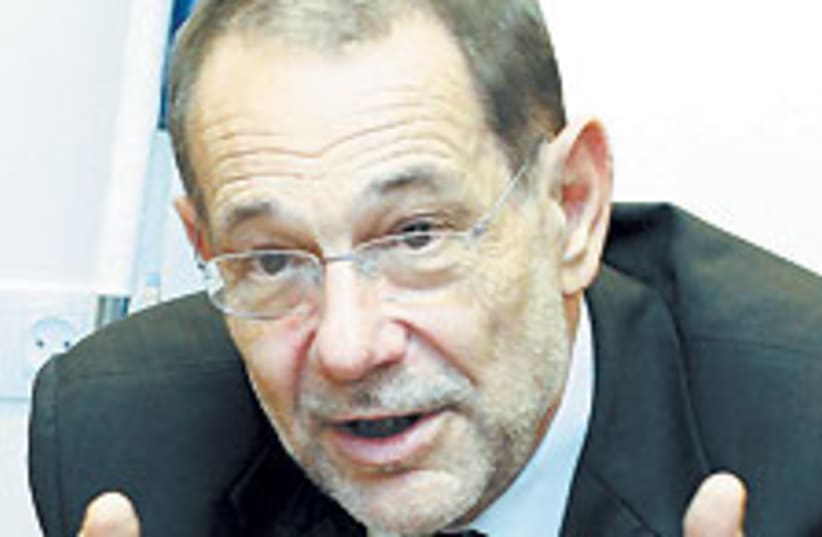Iran will meet with world powers next month for the first time in more than a year in an attempt to reduce tensions over its refusal to curb nuclear activities, while Teheran warned Israel and the US on Monday against a military strike.
EU foreign policy chief Javier Solana.Photo: Ariel Jerozolimski [file]
As Iranian nuclear chief Ali Akhbar Salehi delivered his warning at the International Atomic Energy Agency's general conference in Vienna, the EU's chief diplomat announced Teheran's readiness to follow up last week's offer from the six powers for talks.
That meeting - set for Oct. 1 - could set the stage for substantive negotiations meant to reduce tensions over the Islamic Republic's refusal to freeze uranium enrichment and heed other UN Security Council demands.
While the meeting is formally set between EU foreign policy chief Javier Solana and Iranian nuclear negotiator Saeed Jalili, Solana spokeswoman Christina Gallach said representatives of the US, Russia, China, France, Britain and Germany were expected to be present during those talks.
US Energy Secretary Steven Chu, in Vienna for the IAEA conference, confirmed the US would be sending a representative. "This is an important first step," he told reporters.
Swedish Foreign Minister Carl Bildt, whose country heads the rotating EU presidency, warned against undue expectations, considering the wide divide between Teheran and the six nations on nuclear and other issues.
"The meeting itself is a positive step, yes, but how positive it remains to be seen," he said.
The talks would be the first time the six meet with Iran since more than a year ago. A 2008 session in Geneva foundered over Iran's refusal to discuss enrichment - despite a US decision to send a representative to the talks in a break with past policy.
Iran still formally refuses to discuss the issue. But the US and its partners decided last week to agree to talks with Teheran in hopes that broad negotiations would eventually grow to encompass enrichment and related topics.
Despite the approaching meeting, however, Iran kept to a tough stance at the Vienna meeting, picking up on veiled warnings both by Israel and the US that force could not be ruled out if Iran continued to defy the Security Council.
"We are ... being continuously threatened with attacks on our nuclear facilities," Salehi told the 150-nation conference. "Such a vigilant nation, while taking every threat seriously, is in the meantime confident of its capacity to defend itself.
In blunt criticism of the US, he accused Washington of amassing "frightening and dreadful weaponry in ... the Persian Gulf" in the pretext of acting in America's national interest while denying Iran its right to develop enrichment for peaceful purposes.
"This hovering of threats achieves nothing but adding to my great nation's determination and solidarity," Salehi said.
Teheran says it wants to use enrichment technology to create nuclear fuel, but there are international fears that it seeks to develop it to reconfigure its program and make the fissile core of warheads.
It is under three sets of Security Council sanctions for its refusal to mothball its enrichment program.
| More about: | International Atomic Energy Agency, Javier Solana, Steven Chu, Carl Bildt |
